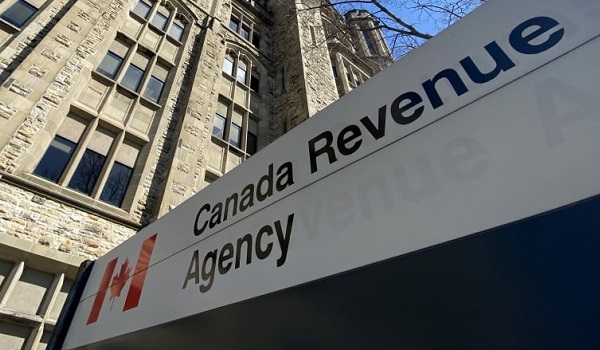Despite stricter tax requirements, some workers are still managing to cope with Canada’s gig economy
For many Canadians, the gig economy is more than just a means for extra cash — at times, it can be a lifeline to recover from financial setback or make ends meet.
That’s something 37-year-old Attila Kallai knows all too well.
When the pandemic crippled the restaurant industry, Kallai, a professional server, turned to grocery and food delivery apps to stay afloat. Today, he spends up to 10 hours driving across Vancouver, fulfilling orders through Instacart and UberEats. Some days, he brings in as little as $60. On better days, he can make up to $200.
Despite its volatile nature, Kallai takes his gig work seriously; regularly tracking income, filing his taxes, and staying informed.
Tax season can be a meticulous time of year, and he worries not everyone in his industry is as well informed as he is.
“I think a lot of people aren’t aware that, yes, you might owe something to the government, but you don’t have to give it all at once,” he said. “Most people don’t want to, and they don’t care.”
Across the country, millions of gig workers like Kallai are facing the new reality of Bill C-47 where companies will file their first “information return” later this month.
Well-known gig platforms like Uber, Etsy and Airbnb among others, will send users income and personal information directly to the Canada Revenue Agency (CRA) due to concerns that those details ‘isn’t always visible’ to tax administrators.
In fact, nearly a third of gig workers have considered not declaring their earnings at all, according to a recent survey from H&R Block Canada. Officials say it’s a growing industry that’s “nearly doubled” in the past 15 years.
For some, the issue of declaring income isn’t a lack of awareness, but simply a means to survive or hold onto a few extra dollars.
“The people that are lying and not trying to file their taxes doing this gig work are day-to-day people trying to survive,” Kallai said. “These people don’t actually want to do most of these jobs. That’s the reality of it.”
Still, Kallai believes platforms could do more to help guide workers through the tax-filing process. A simple FAQ page, he says, could go a long way to smooth out the process.
But, for Lori Barclay from Alberta, daily gig work serves a different purpose.
The 68-year-old Calgary resident lost her corporate job in what she calls “political crossfire” and now works as a delivery driver for “high-end boutiques, pharmacies, halal butchers and even some pot shops.” she tells CTV News.
Though the extra income helps her day-to-day, she says her priority is to maintain her vehicle so she can visit her grandchildren on the opposite side of the city.
Since most of the gig-earnings go toward her vehicle, Barclay’s personal income remains low adding that it allows her to still access her pension benefits.
“I understand the need to keep accurate records and receipts for the CRA,” she said, reflecting on her previous job as a technical writer.
In addition to car maintenance, gig-work also helps replace a vital resource, noting that her original retirement funds were wiped out from the COVID-19 pandemic.
The hustle-like industry includes all kinds of working Canadians. Regardless of race, gender or ethnicity, making ‘enough’ income is considerable burden felt by millions, especially those in unfavourable circumstances.
Terrie Meehan makes deliveries all from the seat of her wheelchair. It’s something she’s been doing for about three years, with extra company from her service dog.
Based in Southern Ontario, 59-year-old Meehan begins her day at 7 a.m. in the morning. She usually makes a cup of coffee or grabs a Caffè Misto from the Starbucks near her home.
But during the winter months, business is slower than normal she says. Adding that she has to be “very careful” of accepting orders too far away.
Meehan relies on gig work to supplement her Ontario Disability Support Program (ODSP) benefits, which she explains is ‘not enough’ to cover the rising cost of living.
She says her disability certificate allows her to claim additional tax benefits that others might not qualify for, such as the Canada Workers Benefit.
“Every dollar I claim as a working benefit, I get 25 per cent extra back,” she said.
When she’s not doing deliveries in extreme cold, she spends her time helping fellow gig workers and friends file their returns. Sometimes she gets paid, other times not.
“If a friend needs it done, I get it done,” she added. “If they pay me 20 bucks, if not, oh well.”
“I’m not doing it to make money, I’m doing it because for some people if I don’t do it, it won’t get done.”
With platforms now required to report earnings, some gig workers worry about how it might affect their financial situation. Meehan, however, sees it as a necessary step.
“It’s just like any other job. You have to pay your taxes,” she said.
As the deadline for “information returns” approaches, workers across the industry will have to decide how to best navigate these changes.
For many, it’s a question of survival. For others, it’s simply part of the job.
This article was first reported by CTV News













